Exclusive: Aanand L Rai on making sequels in Bollywood

Exclusive: Aanand L Rai on making sequels in Bollywood
[ad_1]
Aanand L Rai is so soft spoken and mild natured that it’s difficult to envision him as a hard taskmaster waving his whip around on the sets, getting things done through dint of force. Tell him that and he grins and says that sometimes gentle words are enough to move giants. He’s a one of a kind filmmaker, not limiting himself to just one genre but believes in throwing his net wide. And he doesn’t just run after superstars but casts according to the demands of his script. He has ventured into producing Marathi films as well and plans to segue into other regional cinemas soon. He always speaks from the heart and doesn’t hold back as I ask:
What prompted you to make a sequel to Haseen Dillruba?
A sequel is often warranted when the characters have evolved beyond the scope of the original story. After Haseen Dillruba, I felt that while the story had reached a natural conclusion, the characters had grown in ways that warranted further exploration. The audience responded with immense love for the sequel, Phir Aayi Hasseen Dillruba reinforcing this decision. In Haseen Dillruba, I was particularly fascinated by how an arranged marriage could transform into a love story. Both Rani and Rishu were so committed to their relationship that they were willing to go to any lengths to be together. This complexity and depth in their characters made me believe that there was more to explore.
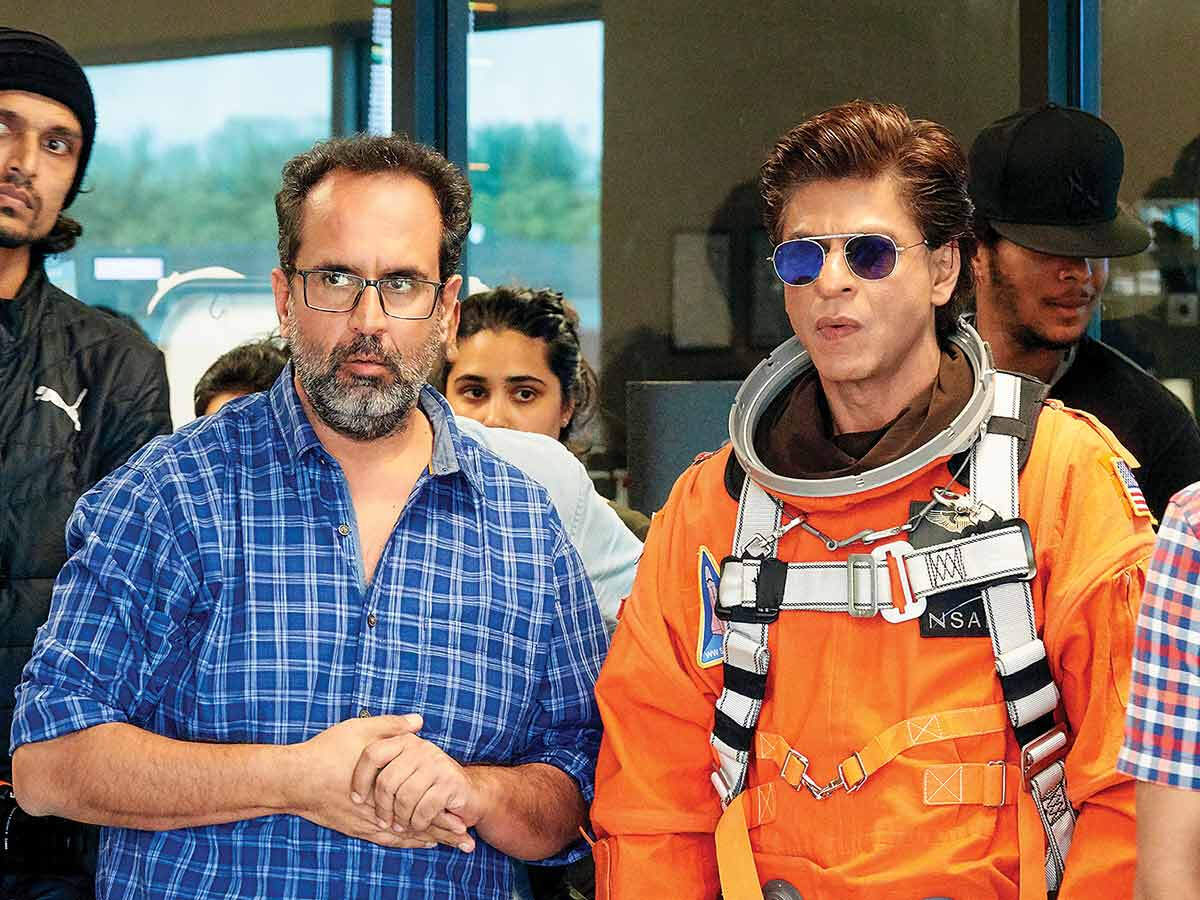
Why did you choose Taapsee Pannu to play the title role?
Both Manmarziyaan and Haseen Dillruba feature very demanding characters that push the boundaries of traditional roles. Taapsee Pannu was an ideal choice for these roles because she fully immerses herself in her characters without judgement. Her willingness to embrace complex roles opens up a wide range of opportunities for her. It’s crucial for actors to allow the character to come to life through them, rather than imposing their own judgments. Taapsee’s approach, where she completely owns her characters, exemplifies this philosophy and contributes to her success in such challenging roles.
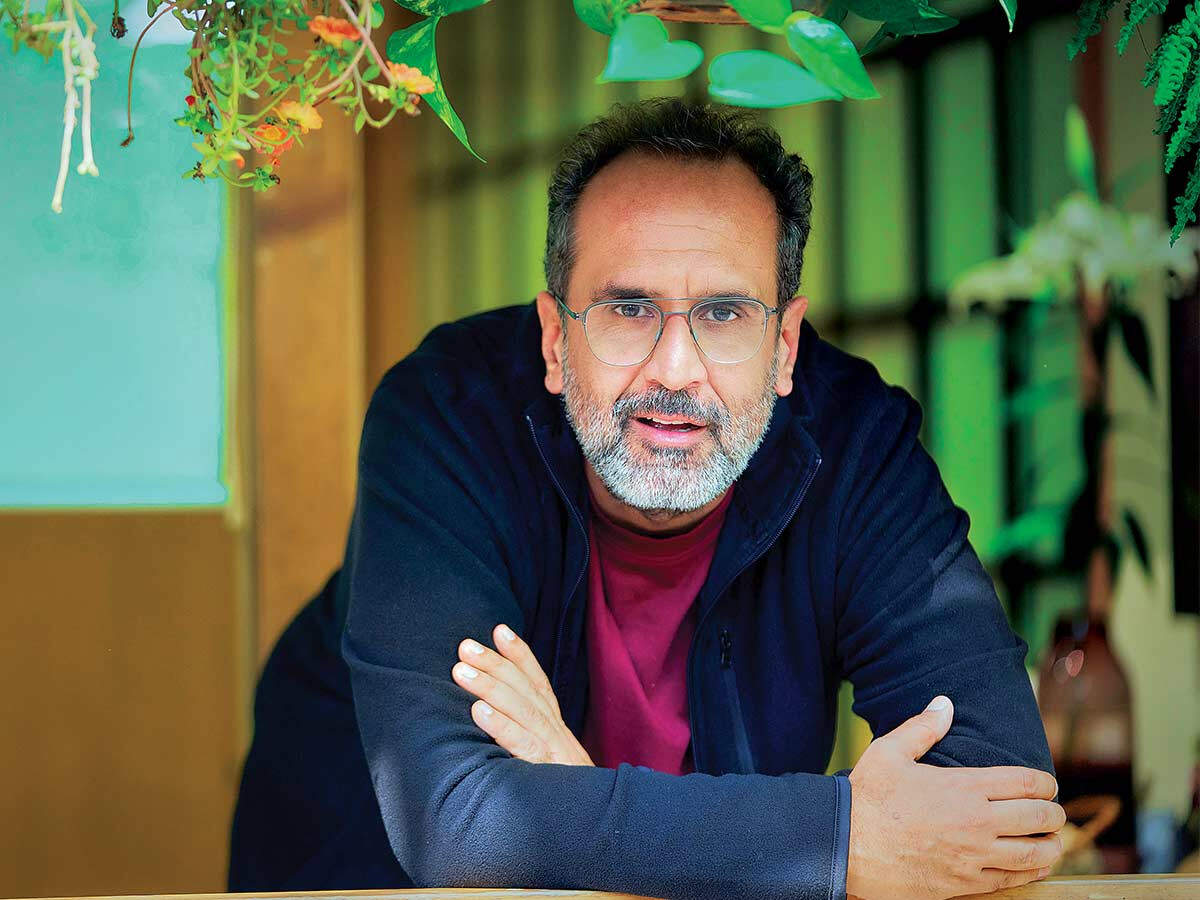
What sets Vikrant Massey apart from other actors?
Vikrant is an intelligent and creative individual. Every creative actor or director has a certain self-interest when it comes to their work, but it’s essential that they also aspire to more than just becoming a star; they need to focus on telling compelling stories. While many actors are talented, only a few possess the conviction, faith and selflessness required to excel in their craft. After the passing of Irrfan Khan, many stories and roles seem to have remained untold, as filmmakers wondered who could match his intensity and depth. Vikrant has the calibre to fill that void. His dedication and authenticity are evident in his work. Actors like Irrfan Khan and Vikrant engage in such diverse and impactful roles that they prevent the audience from forming a single, limiting image of them. By continually taking on varied characters, they constantly redefine their own stardom.
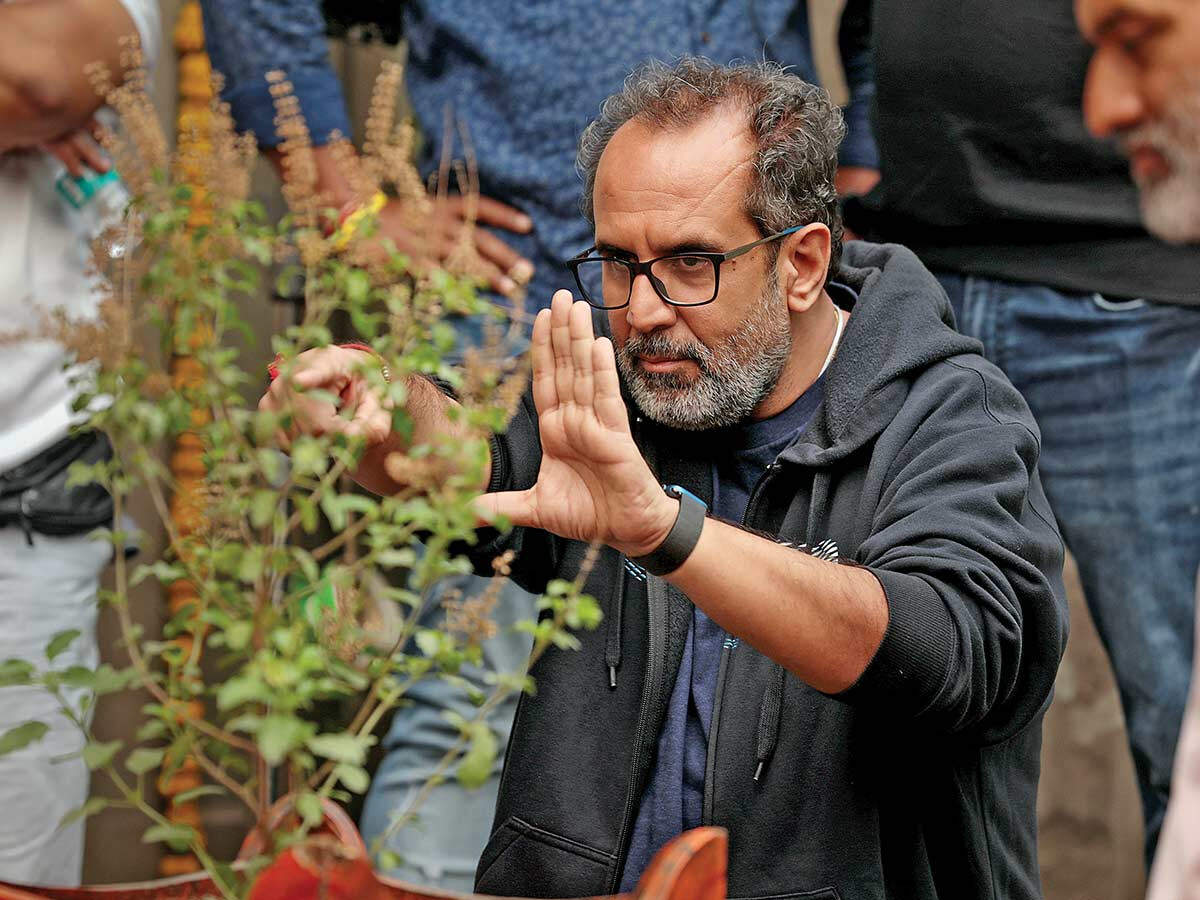
You don’t stick to one genre when it comes to production. Why so?
The films I direct are written by Himanshu Sharma and we typically take two to two and a half years to complete a film. I’ve come to realise that I’m a workaholic. While I’m immersed in one story, I find it beneficial to work on two or three other stories with different directors.
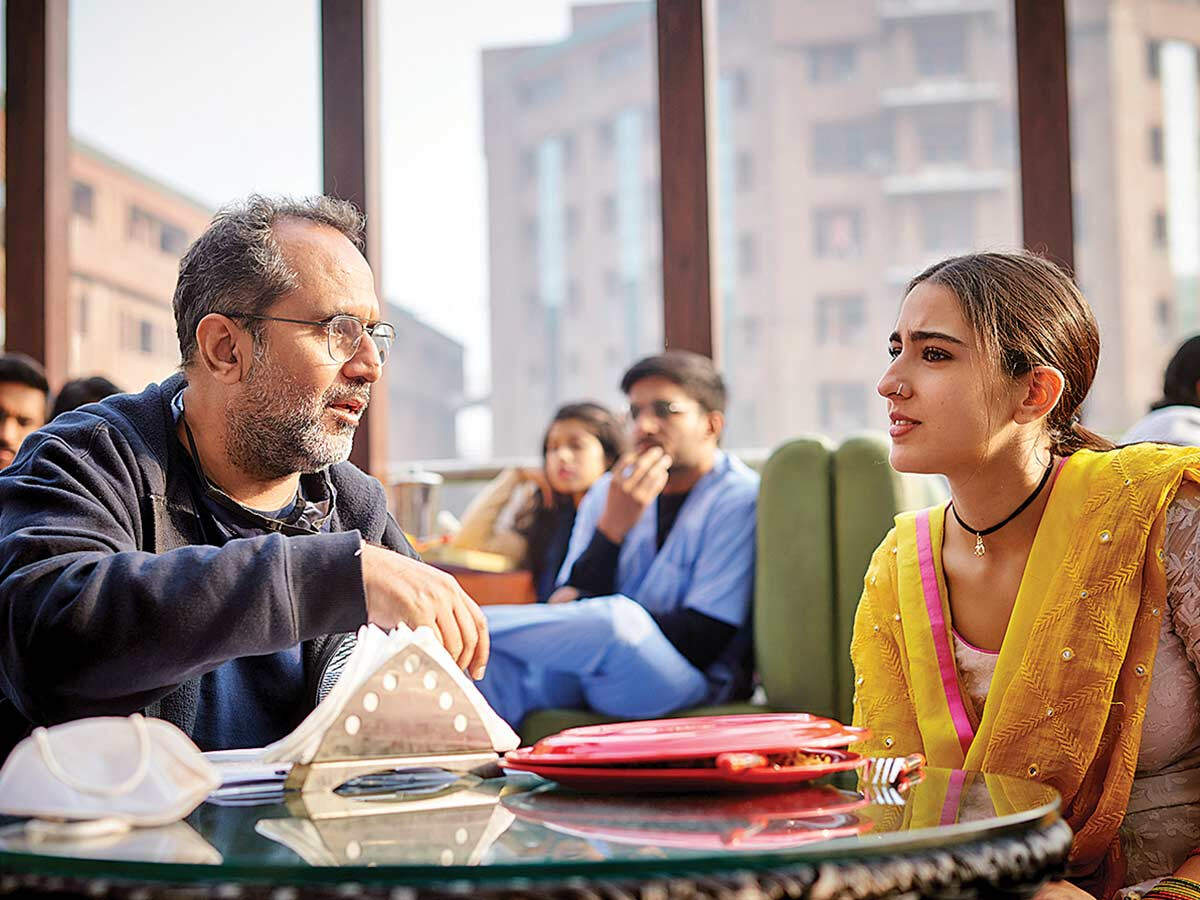
I have a deep appreciation for the work of Anurag Kashyap, Ashwini Iyer Tiwari and Kanika Dhillon. I choose stories based on my interest in them rather than their genre. For instance, although horror or thrillers aren’t usually my preference, I loved Tumbaad. It’s a film with remarkable qualities. In terms of themes, I’m drawn to stories that align with meaningful messages. For example, Newton emphasised the importance of voting.
I get involved with a story because I genuinely like it; I’m not focused on making it but on being a part of it. I enjoy exploring different genres, it keeps me engaged and prevents me from getting bored.
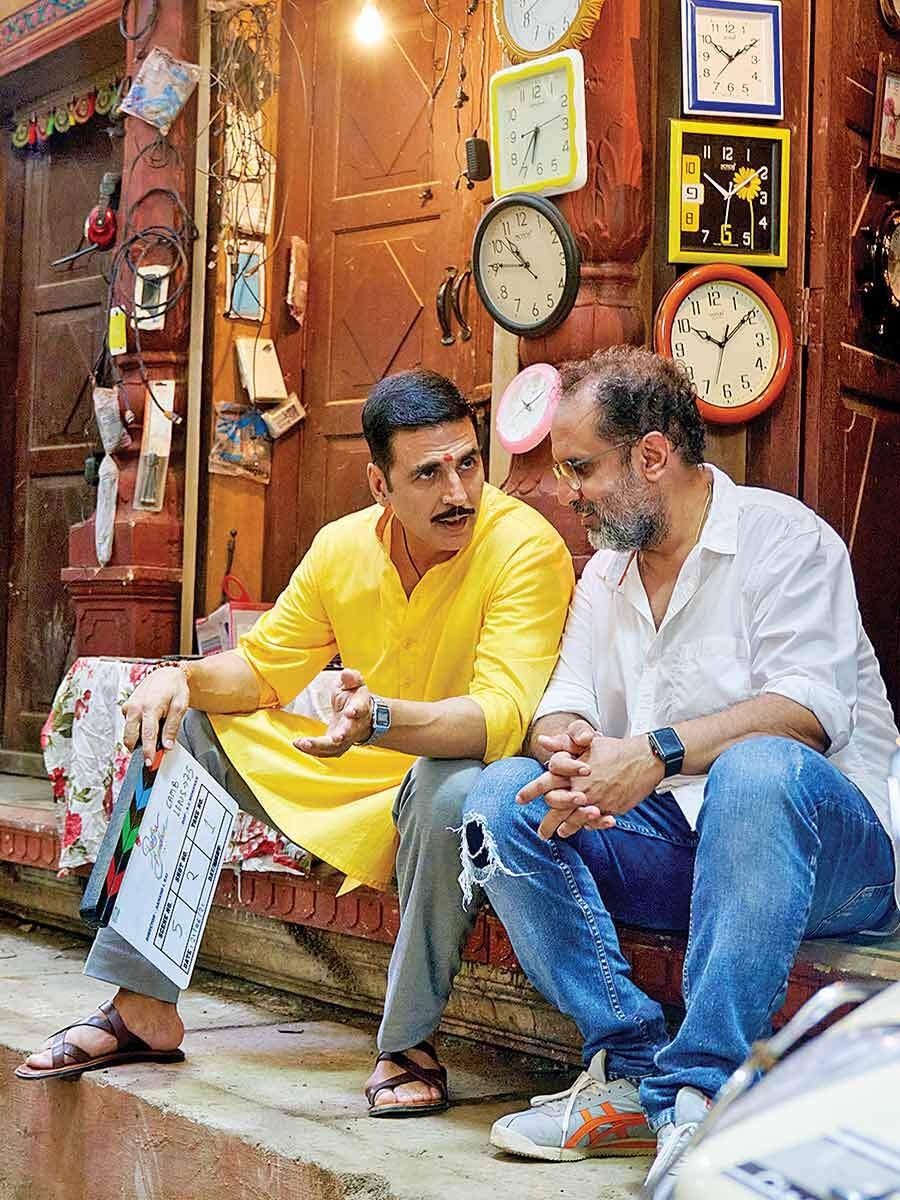
Tanu Weds Manu remains close to the audience’s hearts even now. What do you think is the reason for that?
Perhaps it was the honesty of the then-newbie director Aanand L Rai. At that time, I had nothing to lose, so I didn’t fear losing anything. I was fearless and deeply in love with the story. I always fall in love with my characters and my actors because they bring those characters to life. I feel a profound sense of gratitude when they embrace and embody the characters I’ve created.
Probably that’s why your actors stay connected with you…
From the moment I entered this profession, I was told that once a film ends, the relationship with the actors also ends. This used to scare me because I worried that if the actors who played my characters distanced themselves from me, everything would feel artificial and I wouldn’t enjoy telling the story anymore. I have been fortunate to receive love from various sources, whether through films, the audience, family or friends. That’s why my stories often focus on love.
You’ve made films which mirror the lives of common people and women and you’ve also been involved in superstar vehicles like Zero and Raksha Bandhan, which didn’t do well despite the hype…
Perhaps the stories I choose and the worlds I create have a natural requirement for ordinariness, in which these actors fit perfectly. Madhavan, Dhanush or Kangana possess the quality of presenting themselves as ordinary people. When I worked with a big star, I didn’t fully grasp that they are viewed differently by the audience due to their superstar status. Perhaps portraying a star in a story requires a different approach. This is why it is often said that one is always a student of cinema.
Or is it that the superstars interfered in the film so much that the film didn’t turn out the way you envisioned it?
That wasn’t the case at all. None of these stars ever threw their weight around or interfered with the script. If there were issues, I accept responsibility for them. You can’t place the success or failure of a film solely on one actor. As a director, it’s my job to manage these aspects. I believe true success comes from accepting failure with a smile and acknowledging your own mistakes.
After the failure of a film, how do you pacify yourself and make a new start?
I don’t get depressed when a film doesn’t succeed because I never let myself get carried away during the filmmaking process. If I didn’t get swept up then, I won’t be brought down. If you let your work affect you too much,
it means you’re placing undue importance on yourself. My success lies in the fact that I continue to tell the stories I want to tell, regardless of whether I earn more or less money.
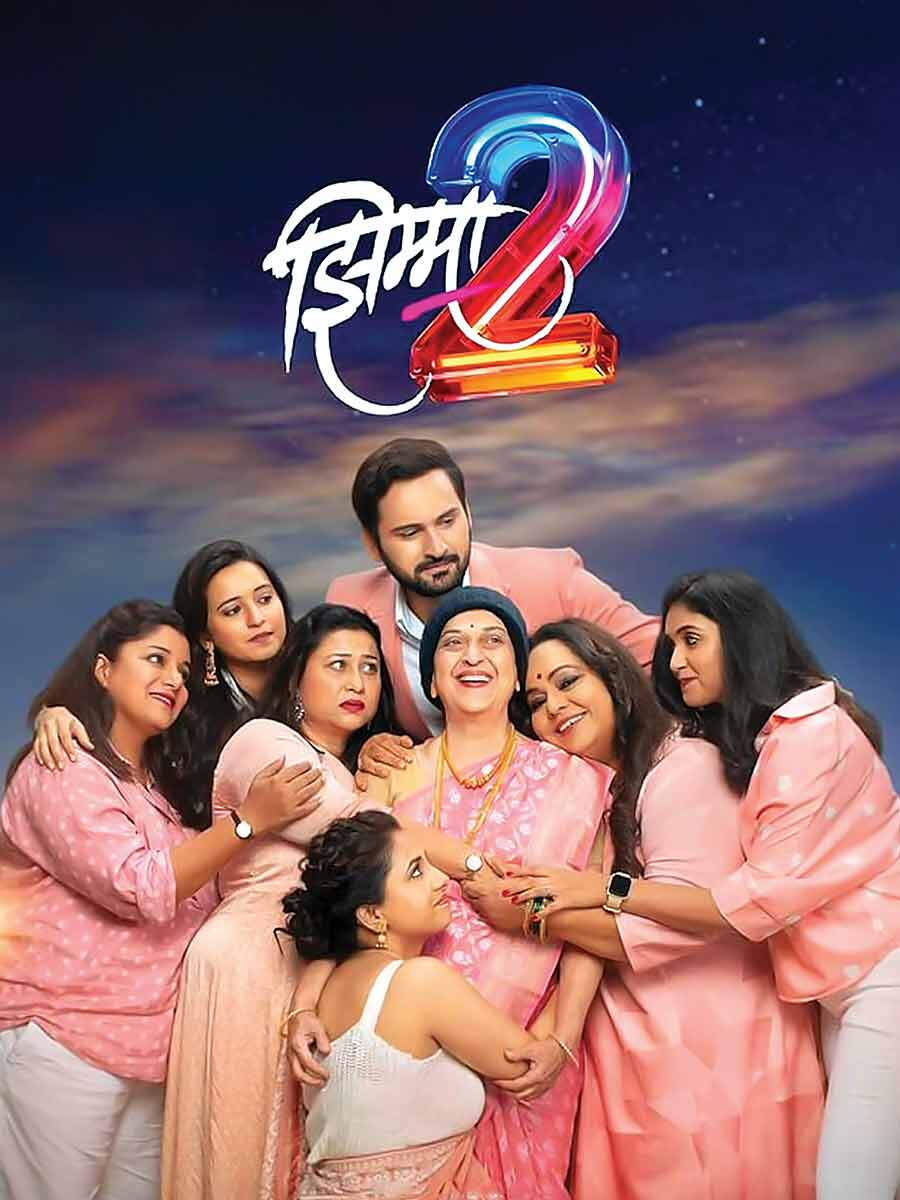
What is the difference between the audience of Tanu Weds Manu then and today’s audience?
There is definitely a shift. For example, Tanu Weds Manu Part 2 came after a four-year gap and Himanshu had to adapt his writing style for it. Success with the first part doesn’t guarantee that the second part will do equally well. Staying relevant to the audience is crucial. If you don’t evolve between successful films, you risk not succeeding with your next one. Each new story reaches a new audience. For instance, Raanjhanaa was released in 2013, and the way the audiences perceived love then will differ from how they view it in 2025. A whole generation changes in a decade, making it challenging to stay in sync with these shifts while telling your story.
Your next film with Dhanush is Tere Ishk Mein. How much has your equation changed with him over
the years?
Nothing has changed between us. He first came to me as an actor, then became a brother and now he feels like a son. From day one, he has been a fantastic actor. It would have been difficult to make Raanjhanaa without him. I brought him back for Atrangi Re. He has grown both as an actor and as a person. I’m confident we’ll have a lot of fun working together on Tere Iskh Mein.
What would you like to say about the Gen-Z actors Sara Ali Khan and Janhvi Kapoor?
Both are very confident. Sara did an excellent job in Atrangi Re with a layered character. What I hope for them is the ability to choose the right stories. Apart from that, both of them are fantastic. My only advice is not to focus solely on the characters they want to play but to choose the right stories they want to be a part of.
What would be your advice to today’s actors?
Before making a film, it’s important to discuss it thoroughly. You should sit with the director and writer. But the real magic happens when you start living and breathing the project on the set. Our job is to help an actor reach their full potential and extract the best performance from them. If the director falls short in any way, it’s the actor’s duty to fill that gap. Sometimes, an actor can even teach a director a thing or two. This generation needs that kind of collaboration. For example, when I worked with Deepak Dobriyal in Tanu Weds Manu (2010), I learnt four valuable lessons from him through the humour he brought to the character of Puppy. Deepak’s sense of comedy significantly influenced the film’s uplifted tone. There are times when a director can’t achieve everything on their own, and that’s where the actor’s contribution becomes crucial.
You have been associated with Himanshu and Kanika Dhillon for a long time. How difficult is it to maintain a relationship?
It’s important to respect and understand each other’s roles. I deeply admire Himanshu’s writing and have great respect for him as a writer. I believe that collaborating with like-minded individuals helps in telling a compelling story. I also have a long-standing association with my staff and associates. I make an effort to build strong bonds with everyone I work with.
Tell us about Ansh Duggal and Pragati Srivastava who will be seen in your next rom-com Nakhrewaalii?
Both are fantastic actors. We now need new faces to bring fresh energy to the industry. This generation is bold and unafraid to speak their minds. I enjoyed hearing their perspectives and opinions. They bring a new, refreshing quality to our work.
[ad_2]




